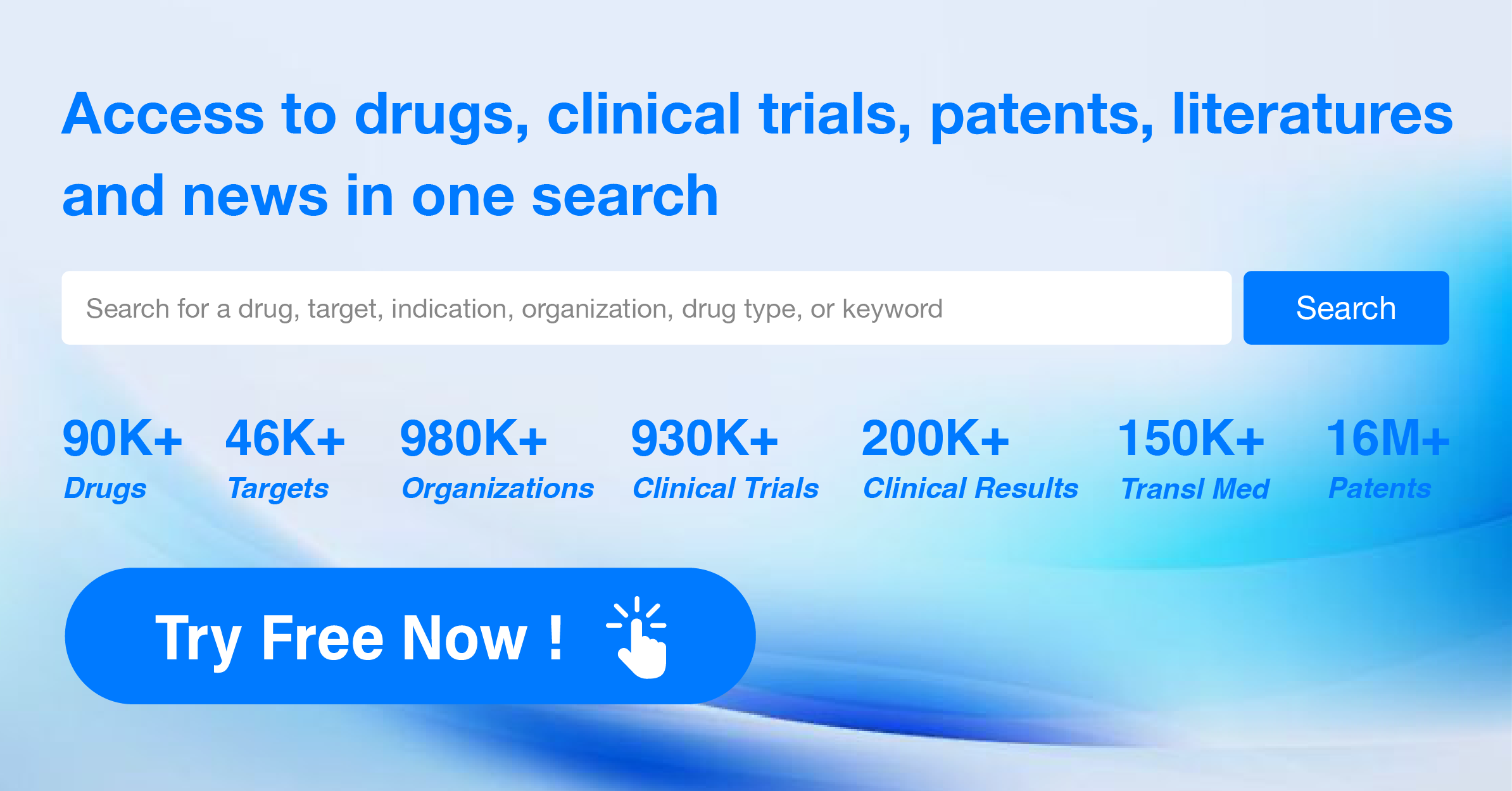Pharma Frontiers: Daily Digest of Global Pharmaceutical News - Jun 27
1.Roche Announces EU Approval for Subcutaneous Injection Formulation of CD20-Targeted Antibody Ocrevus
On June 26, Roche announced that the European Commission has approved its CD20-targeted antibody Ocrevus (ocrelizumab) in a subcutaneous injection formulation for the treatment of Relapsing Multiple Sclerosis (RMS) and Primary Progressive Multiple Sclerosis (PPMS). Previously released clinical results demonstrated that the subcutaneous injection formulation of Ocrevus, requiring just two injections per year with each session lasting only 10 minutes, almost completely inhibited clinical relapses and brain lesions. Ocrevus is a humanized monoclonal antibody designed to target CD20-positive B cells, a specific type of immune cell believed to cause damage to myelin and axons in nerve cells. The subcutaneous formulation of Ocrevus is currently under review by the U.S. FDA, with results expected by September 2024. According to the press release, Ocrevus is the first therapy approved to treat both RMS and PPMS simultaneously. The approval was mainly based on key data from the Phase III clinical trial OCARINA II, which showed that the levels of Ocrevus in the blood from the subcutaneous injection were non-inferior to those from intravenous infusion, and that it demonstrated comparable safety and efficacy in patients with RMS and PPMS. The subcutaneous formulation of Ocrevus was well tolerated, and no new safety issues were detected. Long-term follow-up results released in April showed that the subcutaneous injection of Ocrevus (920 mg; n=236) almost completely suppressed relapse activity during the treatment phase (97.2% of the patients experienced no relapses during treatment). The annual relapse rate at 48 weeks on MRI was 0.04, with the vast majority of patients showing no Gd+T1 lesions and no new/enlarged T2 lesions. These lesion types are markers of active inflammation and disease burden, respectively. Additionally, exploratory patient-reported outcome measures indicated high levels of satisfaction (92.3% of patients felt satisfied or very satisfied) and convenience (90.1% of patients found it convenient or very convenient).
2.AstraZeneca's lung cancer drug Osimertinib has received approval for a new indication in China
On June 25th, the official website of China's National Medical Products Administration (NMPA) announced that AstraZeneca's application for the new indication of the Osimertinib tablets has been approved. Osimertinib is an irreversible third-generation epidermal growth factor receptor tyrosine kinase inhibitor (EGFR-TKI) developed by AstraZeneca. The newly approved indication is for the first-line treatment of EGFR mutation-positive advanced non-small cell lung cancer (NSCLC) in combination with chemotherapy. Osimertinib is one of AstraZeneca’s flagship lung cancer treatments, having demonstrated proven clinical efficacy in patients with non-small cell lung cancer. Currently, Osimertinib has been approved in over 100 countries and regions, including the United States, the European Union, China, and Japan, for use as monotherapy. The approved indications include first-line treatment for patients with locally advanced or metastatic EGFR mutation-positive (EGFRm) non-small cell lung cancer, second-line treatment for patients with locally advanced or metastatic EGFR T790M mutation-positive non-small cell lung cancer, and as adjuvant therapy for early-stage EGFRm non-small cell lung cancer. Additionally, the drug has also been approved in the United States and a few other countries for first-line treatment of locally advanced or metastatic EGFRm non-small cell lung cancer in combination with chemotherapy. AstraZeneca continues to explore the efficacy of Osimertinib in treating patients with non-small cell lung cancer at different stages of the disease who present EGFR mutations. The recent approval in China pertains to the use of Osimertinib in combination with chemotherapy for the first-line treatment of EGFR mutation-positive advanced non-small cell lung cancer.
3.Merck's Pembrolizumab Approved in China for New Indication in Advanced HER2-Positive Gastric or Gastroesophageal Junction Adenocarcinoma
On June 25, the National Medical Products Administration (NMPA) of China officially approved a new indication for Merck's anti-PD-1 monoclonal antibody, Pembrolizumab. According to a press release by Merck, this new indication is approved for use in combination with Trastuzumab, fluoropyrimidine-based and platinum-based chemotherapy for the first-line treatment of patients with locally advanced unresectable or metastatic HER2-positive gastric or gastroesophageal junction adenocarcinoma, whose tumors express PD-L1 (CPS≥1) as determined by an FDA-approved test. With this, the total approved indications for Pembrolizumab in China have now reached 14.
The approval of this new indication is based on data from the global Phase 3 clinical study KEYNOTE-811. According to Merck’s public documents, KEYNOTE-811 is a randomized, double-blind, Phase 3 trial involving approximately 732 participants. The study's dual primary endpoints are progression-free survival (PFS) and overall survival (OS), assessed by blinded independent central review according to the RECIST v1.1 guidelines. The secondary endpoints include objective response rate (ORR), duration of response, and safety.
In 2023, an interim analysis published in The Lancet medical journal revealed that the KEYNOTE-811 trial met one of its primary endpoints — significantly extending patients' PFS. At a median follow-up of about 28 months, the PFS was 10 months for the Pembrolizumab combination therapy group, compared to 8.1 months for the group receiving only Trastuzumab and chemotherapy. Adding Pembrolizumab reduced the risk of disease progression or death by 28%.In May of this year, Merck announced that KEYNOTE-811 also achieved another primary endpoint by significantly extending OS. This positive data is expected to support the conversion of Pembrolizumab's FDA accelerated approval to a full approval.
4.Chia Tai Tianqing Liraglutide Biosimilar Approved for Marketing
On June 25th, the official website of China's National Medical Products Administration (NMPA) announced the approval of the marketing application for Chia Tai Tianqing’s Liraglutide injection biosimilar. It is publicly known that Liraglutide is a human GLP-1 receptor agonist. Type 2 diabetes is a chronic metabolic disease primarily characterized by insulin resistance, which impairs insulin function. For these patients, using insulin alone is insufficient for effective management of their condition, necessitating other types of antidiabetic drugs to control blood sugar levels. Human glucagon-like peptide-1 (GLP-1) products are relatively safe and offer benefits including weight reduction, glycemic control, and cardiovascular health, making them a mature, stable, and safe target. As a GLP-1 receptor agonist, Liraglutide shares 97% sequence homology with human GLP-1. The original Liraglutide drug, developed by Novo Nordisk, entered the Chinese market in 2011 and was approved for use in adults with Type 2 diabetes to control blood sugar. Internationally, Liraglutide has also been approved for the treatment of obesity or overweight patients. According to a previous press release by Chia Tai Tianqing, their Liraglutide injectable biosimilar facilitates the secretion of endogenous insulin triggered by glucose, reduces glucagon secretion, slows gastric motility and empty democracy, and decreases appetite and food intake, thus controlling blood sugar while avoiding hypoglycemia and weight gain.
5.Ionis Pharmaceuticals' new antisense oligonucleotide drug, Olezarsen, has been granted FDA priority review
On June 25th, Ionis Pharmaceuticals announced that the FDA has accepted the New Drug Application (NDA) for Olezarsen for the treatment of familial chylomicronemia syndrome (FCS) and granted it Priority Review status, with a PDUFA (Prescription Drug User Fee Act) date set for December 19, 2024. Familial chylomicronemia syndrome is a rare genetic disorder caused by impaired function of lipoprotein lipase (LPL), characterized by extremely high triglyceride levels. Olezarsen (IONIS-APOCIII-LRx) is a novel N-acetylgalactosamine (GalNAc) conjugated antisense oligonucleotide targeting liver APOC III mRNA, which selectively inhibits the synthesis of APOC III. Inhibiting APOC III synthesis is a potentially effective way to reduce triglyceride levels. The NDA submission is primarily based on data from the Phase III BALANCE study.
The BALANCE study was a global, multicenter, randomized, double-blind, placebo-controlled Phase III clinical trial that enrolled 66 adult patients with FCS, who were receiving background therapy including statins, fibrates, and omega-3 fatty acids. In this study, patients were randomized in a 1:1:1 ratio to receive subcutaneous injections of 50 mg or 80 mg of Olezarsen, or placebo, every 4 weeks for 53 weeks. The primary endpoint was the percentage change in fasting triglyceride levels compared to baseline at 6 months relative to placebo. Results showed that in the 80 mg dose group, Olezarsen achieved the main endpoint, with a statistically significant reduction in triglyceride levels adjusted for placebo at 6 months from baseline (44%, p<0.001); from 6 months to 12 months, a continued reduction in triglyceride levels adjusted for placebo was observed, reaching 59%; and apoC-III levels reduced by 74% at 6 months and 81% at 12 months after placebo adjustment compared to baseline values.
6.Wave Life Sciences Announces Positive Results from Phase 1b/2a Clinical Trial of Investigational Drug WVE-003
On June 26th, Wave Life Sciences announced positive results from the SELECT-HD Phase 1b/2a clinical trial for its investigational drug WVE-003 for the treatment of Huntington's disease (HD). WVE-003 is an allele-specific antisense oligonucleotide (ASO) designed to reduce the expression of mutant huntingtin protein (mHTT) while preserving the healthy wild-type huntingtin protein (wtHTT). The data indicate that WVE-003 demonstrated overall good safety and tolerability with no serious adverse events (SAEs) reported, and ventricular volume consistent with natural history. Over a 28-week assessment period, there was a significant reduction in mHTT protein levels in patients treated with WVE-003: at 24 weeks (8 weeks post-last dose), there was an average reduction of 46% in mHTT in cerebrospinal fluid (CSF) compared to placebo (p=0.0007). At 28 weeks (12 weeks post-last dose), the average reduction in CSF mHTT was 44% (p=0.0002), supporting the potential for quarterly or less frequent dosing. During the 28-week evaluation period, wtHTT protein levels were maintained, confirming allele-specific silencing. Additionally, compared to placebo, wtHTT protein levels significantly increased. wtHTT protein supports neuronal health and function and is critical for CSF flow in the ventricles. mHTT impairs the function of wtHTT, and only selective reduction of mHTT may alleviate its negative impact on wtHTT protein function. At 24 weeks (last MRI assessment), the reduction in mHTNow(TT was associated with a slowdown in caudate nucleus atrophy (R=-0.50; p=0.047). Caudate atrophy is an imaging biomarker that can predict clinical outcomes in patients, including clinically significant deterioration in Total Motor Score (TMS).
7.CSPC Pharmaceutical Group's first CAR-T cell therapy, SYS6022 injectable, receives clinical approval
On June 25, CSPC Pharmaceutical Group announced that its mRNA-LNP based Chimeric Antigen Receptor (CAR) T-cell injectable, SYS6020, has received implied authorization for clinical trials in China. The therapy is intended for treating relapsed or refractory multiple myeloma. This marks the first significant achievement in CSPC Pharmaceutical's strategic expansion into cell therapy. SYS6020 is an mRNA-LNP based cell therapy product that targets BCMA-positive cells in patients by expressing a CAR that specifically recognizes the BCMA antigen, thereby enabling the targeted killing of these cells to achieve therapeutic effects. According to CSPC Pharmaceutical's press release, SYS6020 offers several advantages over traditional CAR-T therapies, including high cell viability, high CAR positivity rate, no risk of tumorigenesis due to genomic integration, and lower incidence of side effects such as cytokine release syndrome (CRS). Preclinical studies have shown that SYS6020 can significantly kill BCMA antigen-positive multiple myeloma cells, demonstrating good safety and efficacy. The clinical indication approved for this trial is multiple myeloma (MM). Additionally, this product has potential therapeutic applications in treating autoimmune diseases such as Systemic Lupus Erythematosus (SLE) and Myasthenia Gravis (MG), highlighting its significant clinical development potential. The approval of clinical trials for this product represents a crucial milestone in the group’s cell therapy initiatives and lays a solid foundation for the development of other cell therapy products, such as in vivo generated CAR-T therapies.
8.Eli Lilly and Company Announces Collaboration with OpenAI to Develop Innovative Antibiotics
On June 26, Eli Lilly and Company announced a collaboration with OpenAI to utilize OpenAI's generative AI for the discovery of new antibiotics to treat drug-resistant pathogens. Antimicrobial resistance (AMR) is one of the largest public health and development threats globally, primarily due to the misuse and overuse of drugs. Earlier, the portfolio had committed $100 million to the AMR Action Fund with the aim to provide patients with two to four new antibiotics by 2030, offering a next line of defense against multi-drug resistant pathogens. In April 2023, the AMR Action Fund announced its latest investments in a series of biotechnology companies targeting infections.
How to obtain the latest research advancements in the field of biopharmaceuticals?
In the Synapse database, you can keep abreast of the latest research and development advances in drugs, targets, indications, organizations, etc., anywhere and anytime, on a daily or weekly basis. Click on the image below to embark on a brand new journey of drug discovery!




